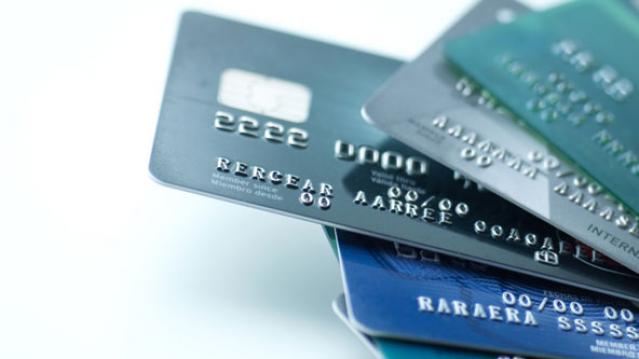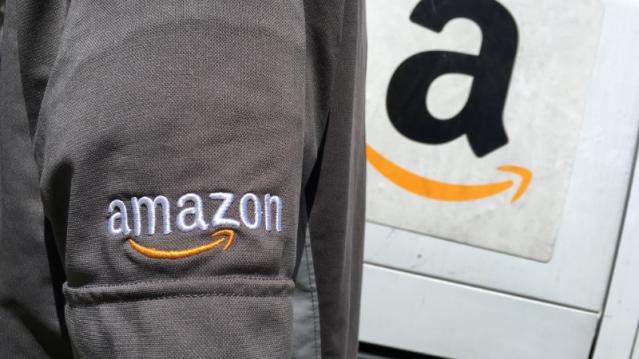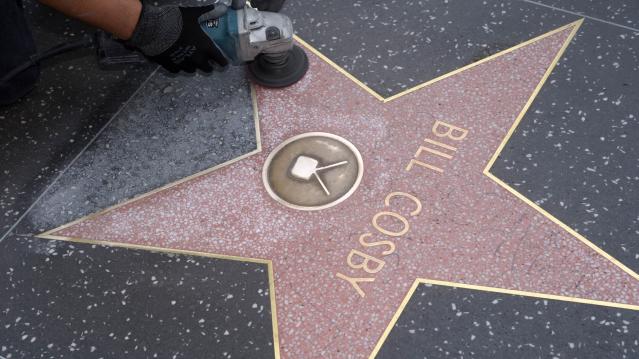Congress Sends Tax Bill to the White House

The Republican-controlled U.S. House of Representatives gave final approval on Wednesday to the biggest overhaul of the U.S. tax code in 30 years, sending a sweeping $1.5 trillion bill to President Donald Trump for his signature.
In sealing Trump’s first major legislative victory, Republicans steamrolled opposition from Democrats to pass a bill that slashes taxes for corporations and the wealthy while giving mixed, temporary tax relief to middle-class Americans.
The House approved the measure, 224-201, passing it for the second time in two days after a procedural foul-up forced another vote on Wednesday. The Senate had passed it 51-48 in the early hours of Wednesday.
Trump had emphasized a tax cut for middle-class Americans during his 2016 campaign. At the beginning of a Cabinet meeting on Wednesday, he said lowering the corporate tax rate from 35 percent to 21 percent was “probably the biggest factor in this plan.”
Trump planned a tax-related celebration with U.S. lawmakers at the White House in the afternoon but will not sign the legislation immediately. The timing of the signing was still up in the air.
After Trump repeatedly urged Republicans to get it to him to sign before the end of the year, White House economic adviser Gary Cohn said the timing of signing the bill depends on whether automatic spending cuts triggered by the legislation could be waived. If so, the president will sign it before the end of the year, he said.
The debt-financed legislation cuts the U.S. corporate income tax rate to 21 percent, gives other business owners a new 20 percent deduction on business income and reshapes how the government taxes multinational corporations along the lines the country’s largest businesses have recommended for years.
Millions of Americans would stop itemizing deductions under the bill, putting tax breaks that incentivize home ownership and charitable donations out of their reach, but also making tax returns somewhat simpler and shorter.
The bill keeps the present number of tax brackets but adjusts many of the rates and income levels for each one. The top tax rate for high earners is reduced. The estate tax on inheritances is changed so far fewer people will pay.
Once signed, taxpayers likely would see the first changes to their paycheck tax withholdings in February. Most households will not see the full effect of the tax plan on their income until they file their 2018 taxes in early 2019.
In two provisions added to secure needed Republican votes, the legislation also allows oil drilling in Alaska’s Arctic National Wildlife Refuge and repeals the key portion of the Obamacare health system that fined people who did not have healthcare insurance.
“We have essentially repealed Obamacare and we’ll come up with something that will be much better,” Trump said on Wednesday.
“Pillaging”
Democrats have called the tax legislation a giveaway to the wealthy that will widen the income gap between rich and poor, while adding $1.5 trillion over the next decade to the $20 trillion national debt, which Trump promised in 2016 he would eliminate as president.
“Today the Republicans take their victory lap for successfully pillaging the American middle class to benefit the powerful and the privileged,” said House Democratic leader Nancy Pelosi.
few Republicans, whose party was once defined by its fiscal hawkishness, have protested the deficit-spending encompassed in the bill. But most of them have voted for it anyway, saying it would help businesses and individuals, while boosting an already expanding economy they see as not growing fast enough.
“We’ve had two quarters in a row of 3 percent growth,” Senate Republican leader Mitch McConnell said after the Senate vote. “The stock market is up. Optimism is high. Coupled with this tax reform, America is ready to start performing as it should have for a number of years.”
Despite Trump administration promises that the tax overhaul would focus on the middle class and not cut taxes for the rich, the nonpartisan Tax Policy Center, a think tank in Washington, estimated middle-income households would see an average tax cut of $900 next year under the bill, while the wealthiest 1 percent of Americans would see an average cut of $51,000.
The House was forced to vote again after the Senate parliamentarian ruled three minor provisions violated arcane Senate rules. To proceed, the Senate deleted the three provisions and then approved the bill.
Because the House and Senate must approve the same legislation before Trump can sign it into law, the Senate’s late Tuesday vote sent the bill back to the House.
Democrats complained the bill was a product of a hurried, often secretive process that ignored them and much of the Republican rank-and-file. No public hearings were held and numerous narrow amendments favored by lobbyists were added late in the process, tilting the package more toward businesses and the wealthy.
U.S. House Speaker Paul Ryan defended the bill in television interviews on Wednesday morning, saying support would grow for after it passes and Americans felt relief.
“I think minds are going to change,” Ryan said on ABC’s “Good Morning America” program.
Reporting by David Morgan and Amanda Becker; Additional reporting by Richard Cowan, Roberta Rampton, Gina Chon and Susan Heavey; Editing by Jeffrey Benkoe and Bill Trott.
When It Comes to Fees, These Credit Cards Are the Worst

Two credit cards from First Premier Bank have the most fees of 100 cards researched for a CreditCards.com report released today.
The average number of fees per credit card analyzed was six, but the First Premier Bank Credit Card and the First Premier Bank Secured MasterCard carry 12 potential fees each. The PenFed Promise Visa Card was the only one in the survey that levied no fees at all.
A quarter of the cards surveyed charged an annual fee, although 10 percent waived that fee for a consumers’ first year. All cards except for the PenFed Promise Visa Card charged a late payment fee, which can run up to $25.
Related: What to Know Before Your Teen Gets a Credit Card
Penalty fees tend to be easier for consumers to avoid (don’t make late payments), and it’s worth shopping around for cards that don’t have fees for the transactions you need.
Most cards carry a cash advance fee, typically the greater of either $10 or 5 percent of each cash advance. Among cards that allow balance transfers, 90 percent charge a fee for doing so, typically $5 or 3 percent of the transfer.
Another common fee was the foreign transaction fee, typically about 3 percent per transaction, charged by 77 percent of cards. “If you travel internationally a lot, a credit card that doesn’t charge foreign transaction fees is a great value,” CreditCards.com senior industry analyst Matt Schulz said in a statement.
If you’re hit with an unexpected, one-time fee, try calling your issuer and asking them for a refund. Often customer service reps are authorized to do so on a case-by-case basis.
MOST POTENTIAL FEES
- First Premier Bank Credit Card (12)
- First Premier Bank Secured MasterCard (12)
- Credit One Visa Platinum (9)
- Fifth Third Bank Platinum MasterCard (9)
- Navy Federal Credit Union Platinum (9)
- Navy Federal Credit Union Cash Rewards (9)
- Regions Visa Platinum Rewards (9)
FEWEST POTENTIAL FEES
- PenFed Promise Visa Card (0)
- ExxonMobil SmartCard from Citi (3)
- Spark Classic from Capital One (3)
- Capital One Spark Cash Select for Business (3)
- Spark Miles Select by Capital One (3)
Amazon vs. Walmart: A Graphic Look at the Numbers on Prime Day

Amazon’s campaign to create a Christmas-in-July shopping frenzy online seemed to be working on Wednesday, if the sheer number of blog posts debating the pros and cons of its big sales event are any measure.
Marking the company’s 20th anniversary while promoting Amazon Prime -- the $99 a year program which provides free shipping, online video and other perks -- Prime Day promises “more deals than Black Friday,” according to the retailing giant.
While some shoppers complained about lackluster offerings, critics were missing the point. Amazon’s likely goal was not to boost revenues through a massive sale, but to sell more Amazon Prime memberships. As always, Amazon has its eye on the prize of becoming the world’s largest retailer.
Walmart, the current retailer champion, didn’t the challenge sitting down, announcing its own massive online sale beginning July 15. It looks like the battle is on for control of the mass market online shopping space.
How do the two retailing giants stack up? This graphic from WebpageFX provides some basic facts.

Created by WebpageFX
Obama All but Calls Cosby a Serial Rapist

For months, comedian Bill Cosby has come under relentless attack amid allegations that he raped dozens of women over the years after slipping them drugs. As the controversy grew, some on Capitol Hill questioned whether something should be done to strip the long-celebrated actor of a Presidential Medal of Freedom awarded him in 2002 during the Bush administration.
Today at a White House news conference, President Obama abruptly veered from an extensive defense of the Iran nuclear deal to a thinly veiled denunciation of Cosby as a serial rapist. In response to a reporter’s question of whether he would consider rescinding the medal, Obama said, “There’s no precedent for revoking a medal,” and that “we don’t have the mechanism.”
Then, after noting that he rarely publicly discusses pending civil law suits that might result in criminal charges, he made this startling pronouncement: “I’ll say this: If you give a woman -- or a man for that matter -- without his or her knowledge a drug and then have sex with that person without consent, that’s rape.”
It was a dramatic moment as the first African American president in U.S. history denounced from the White House pulpit the conduct of one of the most prominent and (once) beloved black actors and comedians of modern times.
Related: Bill Cosby's Moralizing Comes Back to Haunt Him
Cosby and his lawyers for months have dismissed as fantasy claims by more than two dozen women that they had been sexually assaulted by the actor over the past several decades – frequently after having been given knock-out drugs to make them groggy or put them to sleep.
But this ‘he said-she said’ controversy came to an end earlier this month after Cosby had admitted in a deposition giving Quaaludes to women he wanted to have sex with.
The documents, dating back to 2005, stem from a civil lawsuit filed by Andrea Constand -- one of the dozens of women who have publicly accused the comedian of sexual assault. The records were made public after The Associated Press went to court to compel their release.
Following that report, Sens. Kirsten Gillibrand (D-NY) and Claire McCaskill (D-MO) said it was an outrage that Cosby continued to hold the highest civilian honor in America. In a statement to Politico, a spokeswoman for Gillibrand said Cosby's medal must be revoked "because we need to set a clear example that sexual assault will not be tolerated in this country."
Obama apparently agrees with the senators, but just doesn’t know what he could do to take the medal back.
Garage or Backyard? Here’s What First-Time House Buyers Want

More than two-thirds of potential first-time homebuyers want a house in move-in condition, and 43 percent are looking for a place in the burbs.
Beyond that, first-time buyers are most interested in a home with a backyard or pool, striking design, and smart or energy efficient technology, according to the TD Bank First-Time Home Buyer Pulse.
“It’s encouraging to see interest from the first-time homebuyers who have been cautious for much of the housing recovery,” TD Bank Head of Pricing and Secondary Markets Scott Haymore said in a statement. “Consumers are gaining confidence in the economy and many are looking to enter the housing market within the next two years.”
Related: Why First-Time Home Buyers Are Flocking to Tennessee
Last year, first-time homebuyers comprised 38 percent of the market, according to the National Association of Realtors.
Among those surveyed, 62 percent want to make a down payment of at least 20 percent, but nearly two-thirds said they were still saving up for it. Almost half said they needed to pay down debt before they could buy a house.
The average down payment in the first quarter of 2015 was $57,710, reports RealtyTrac. Entry-level buyers usually put down less money than repeat buyers, and are more likely to take advantage of Federal Housing Administration loans, which allow down payments of as little as 3 percent for those who qualify.
Those who can’t get an FHA loan can still put down less than 20 percent by buying private mortgage insurance, with annual premiums of between 0.5 percent and 1 percent of the loan amount.
Obama Faces Widespread Public Distrust on Iran Deal
President Obama will try to drum up support for the U.S.-Iran nuclear deal Wednesday afternoon at a news conference. But with widespread public disdain and distrust of Iran, Obama may have trouble convincing Americans of the wisdom of dealing with a long-time arch enemy in the Middle East.
The U.S. and Iran on Tuesday announced an agreement that would potentially block Iran’s development of a nuclear weapon for at least a decade while lifting international economic sanctions against Tehran. However, a new AP-GfK poll that was conducted just ahead of the announcement found that Americans only narrowly back diplomatic relations with the hardline Islamic government, and many want to see the sanctions kept in place.
Related: The 8 Most Important Things to Know About the Iran Nuclear Deal
Just 51 percent of those interviewed said the U.S. should have diplomatic relations with Iran while 45 percent said it shouldn’t. At the same time, 77 percent of those interviewed said the harsh U.S. and international economic sanctions against Iran should be preserved at current levels or even increased.
Only 12 percent of those interviewed thought sanctions should be decreased and seven percent said they should be eliminated altogether.
The public’s wariness and distrust of dating back to the 1979 Iranian revolution and U.S. hostage crisis matches the reception the nuclear agreement has received on Capitol Hill where most Republicans and some Democrats say they fear Obama has conceded too much to a country that has fomented terrorist activities throughout the Middle East and has repeatedly vowed to destroy Israel.
Fifty-six percent of Americans consider Iran to be an enemy, according to the poll conducted last Thursday through Monday, while an additional 31 percent consider Iran to be unfriendly but not an enemy. More than 70 percent of Republicans, half of all independents and 45 percent of Democrats described Iran as the enemy.
Related: Clinton Cautious in Her Praise of a Nuclear Deal She Helped to Orchestrate
Before the agreement was announced, six in ten Americans said they disapproved of Obama's handling of the U.S. relationship with Iran, while just over a third approved.
Obama is likely to prevail in pushing the nuclear non-proliferation agreement through Congress over the next two months, despite near-unanimous opposition from Senate Majority Leader Mitch McConnell, House Speaker John Boehner and other leaders and rank and file Republicans. Still, he will need to hold in place at least 34 of the 46 Democrats in the Senate to create a veto-proof firewall in the event Republicans push through a resolution of disapproval of the nuclear deal.
That means that Obama cannot afford any more than 12 Democratic defections to keep the agreement alive. Yesterday, Obama and Vice President Joe Biden began working the phones to shore up support on Capitol Hill, and the president will continue that effort during this afternoon’s White House press conference.
During an interview yesterday with Tom Friedman of The New York Times, Obama stressed that the deal prevented a pathway for Iran to develop a nuclear weapon while making it clear he shared Americans’ distrust of the Iranian government and had limited expectations of improved relations down the road.
Related: Iran Agrees to Limit Nuclear Weapon in Historic Deal
When announcing the deal yesterday, Obama said, “This deal is not built on trust -- it's built on verification…. We will, for the first time, be in a position to verify that Iran is meeting all of these commitments. International nuclear inspectors will have access to Iran's nuclear program -- where necessary, when necessary. This is the most comprehensive and intrusive verification regime that we have ever negotiated. If Iran tries to divert raw materials to covert facilities, inspectors will be able to access any suspicious locations.”
